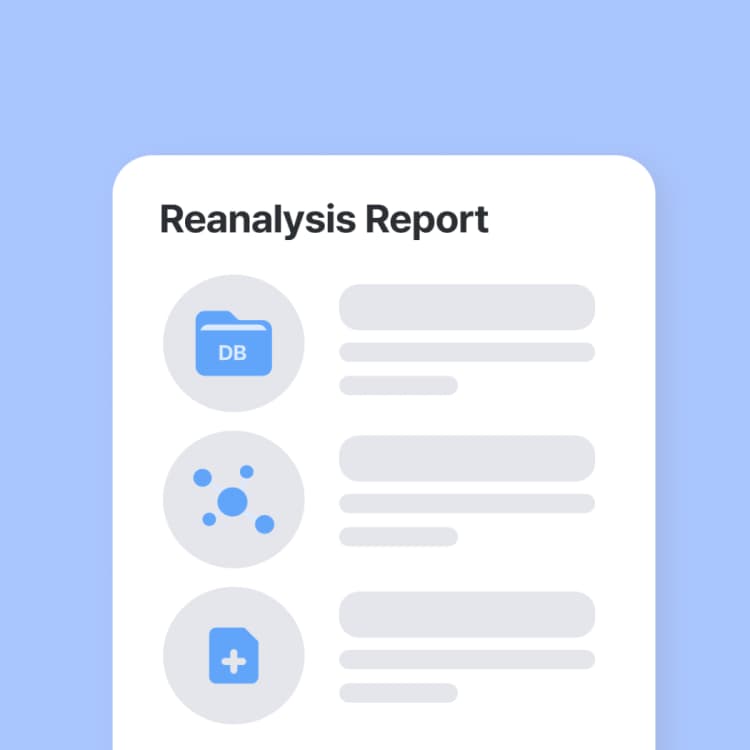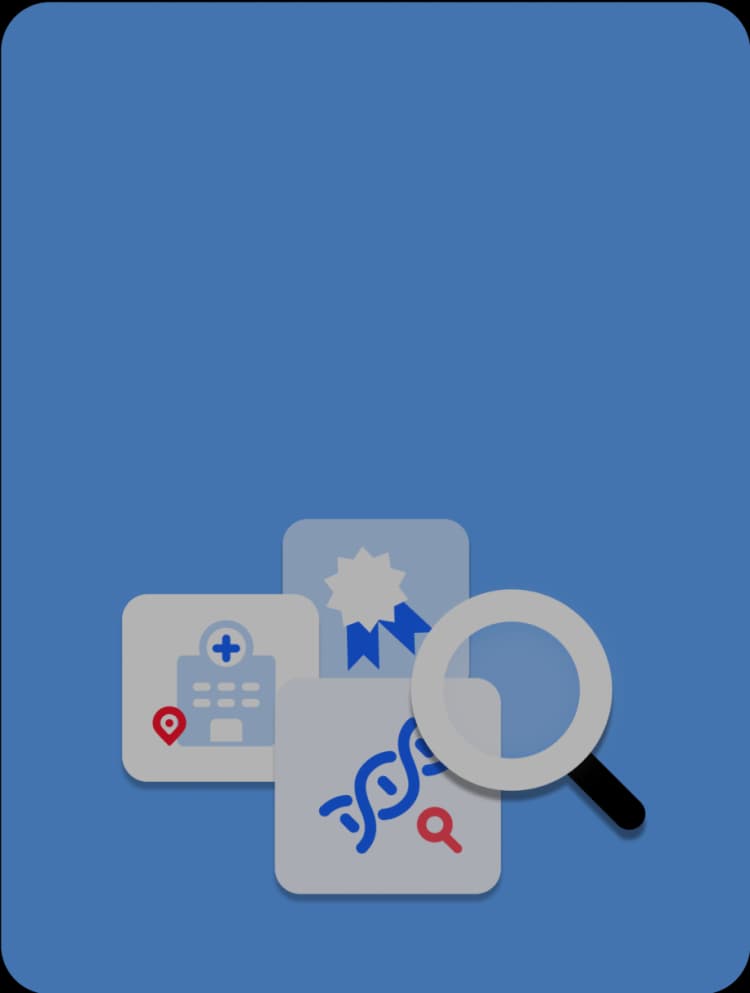How to Choose the Best Genetic Testing Service: A Complete Buyer’s Guide

When choosing a genetic testing service for inherited diseases, it’s crucial to consider several key factors to ensure accuracy, reliability, and meaningful results.
Questions to Ask Before Choosing a Genetic Test
- What conditions does this test screen for?
- Is this test appropriate for my medical/family history?
- How reliable are the results?
- Will I get genetic counseling with my results?
- What are the privacy policies regarding my genetic data?
- What follow-up steps should I take after getting my results?
What Conditions Does This Test Screen For?
Before choosing a genetic test, determine which inherited diseases it covers. Some tests focus on a single condition (e.g., BRCA1/BRCA2 for breast cancer), while others screen for hundreds of conditions in a single panel.
Things to check:
- Does the test focus on specific diseases (e.g., hereditary cancers, neurological disorders, metabolic syndromes)?
- Does it cover rare genetic disorders? Many conditions arise from mutations in genes not typically included in standard panels.
- Does the test analyze multiple genes at once? Some tests only target a pre-selected set of genes, while others—like Whole Exome Sequencing (WES) and Whole Genome Sequencing (WGS)—can identify a broader range of mutations, including those in lesser-known genes.
Why it matters
- The more comprehensive the test, the higher the chance of identifying the root cause of a genetic disorder, especially for conditions with unknown genetic origins.
- WGS provides the most comprehensive analysis but is more expensive and complex.
- WES is a cost-effective option for detecting monogenic (single-gene) disorders.
- Trio WES/WGS is the gold standard for diagnosing rare inherited diseases.
- WGS detects structural variants (SVs), intronic mutations, and regulatory mutations—areas that WES might miss.
Is This Test Appropriate for My Medical/Family History?
Your personal and family medical history should guide your genetic testing choice. Some conditions—like hereditary cancers or cardiovascular diseases—have strong genetic components, meaning an early and thorough analysis can be life-saving.
Many genetic disorders are passed down silently through generations. More comprehensive testing increases the chances of identifying potential risks, even if symptoms haven’t appeared yet.
Things to check:
- Has a healthcare professional recommended genetic testing based on my symptoms or family history?
- Does my ethnic background increase my risk? Some genetic mutations are more common in specific populations, and tests should be broad enough to detect such variants.
- Are you experiencing unexplained medical conditions? (e.g., neurological disorders, developmental delays, metabolic syndromes)
Why it matters
- If symptoms are unknown or complex, ‘Exome/Genome testing’ is better than Panel testing.
- If a specific condition is suspected, targeted multi-gene panels may be more cost-effective.
- Carrier screening is crucial for couples planning a family to detect inherited recessive conditions. (Carrier screening via WES/WGS can identify recessive conditions affecting children.)
How Accurate, Sensitive, and Reliable is the Test?
Not all genetic tests provide the same level of accuracy. The technology and methodology used by the provider play a crucial role.
Things to check:
- High Sensitivity & Specificity – Ensure the test minimizes false positives and negatives.
- Depth and Coverage Level – WGS should have 30x or higher coverage, and WES should be at least 100x for accurate variant detection.
- Clinical Validity – The test should be validated for the conditions being assessed.
- Coverage of Mutations – Some tests detect only common mutations, while others (especially WGS) capture rare and structural variants.
- False Positives/Negatives – No test is 100% accurate, so confirm whether re-testing is available in ambiguous cases.
Why it matters
- Higher depth and coverage reduces the risk of missing mutations.
- Trio WES/WGS improves accuracy by identifying de novo mutations
How Detailed is the Report?
Genetic test results can be complex and difficult to interpret, making the quality of the report and access to genetic counseling crucial.
Things to check:
- Do they provide a detailed, easy-to-understand breakdown of findings?
- Who interprets the results? Ensure the provider has board-certified geneticists or counselors rather than automated software-generated reports.
- Are the results classified using internationally recognized guidelines?
Reports should categorize variants based on ACMG (American College of Medical Genetics) guidelines, labeling them as: Pathogenic, Likely Pathogenic, Variant of Uncertain Significance (VUS), Likely Benign and, Benign. - Does the report include a clear explanation of health risks and actionable steps?
- Is the raw genetic data provided?
- Does the report explain the impact of mutations on treatment decisions?
- Is genetic counseling included or available for an extra fee? Some companies provide free consultations with genetic counselors, while others charge separately.
Why this matters
Some reports are vague, only listing detected variants without clinical interpretation—this can lead to confusion and unnecessary anxiety.
What is the Turnaround Time for Results?
Different tests have different processing times.
Things to check:
- How long does it take to receive results?
- Do they provide rapid testing options for critical cases?
Why it matters
- Faster turnaround may be needed for pregnancy-related or life-threatening conditions.
- WGS typically takes longer than WES due to data complexity.
Can My Data Be Reanalyzed in the Future?
The American College of Medical Genetics (ACMG) recommends that genetic data for undiagnosed patients be reanalyzed at least once every two years to incorporate new research and findings.
Things to check:
- Does the provider offer free reanalysis?If yes, how often?
- Can I request a reanalysis if new research emerges?
- Will I receive updates on newly discovered mutations?
- How do I receive updates on newly discovered mutations?
Some services offer lifetime reanalysis, meaning if new genetic discoveries emerge, your results can be updated accordingly. At 3billion, we take this a step further by conducting reanalysis daily, at no additional cost to patients or healthcare providers. This approach not only keeps pace with the rapid advancements in the field but also alleviates the financial and emotional burdens often associated with prolonged diagnostic processes.
Why it matters
- Uncovering Missed Variants: Genetic testing technologies and databases are constantly improving. Reanalysis allows healthcare professionals to identify genetic variations that may have been missed during the initial analysis due to limitations in technology or knowledge.
- New Disease Associations: Scientific research continuously reveals new links between genetic variations and diseases. Reanalysis ensures that patients benefit from the latest findings, potentially leading to more accurate diagnoses and treatment plans.
- Improved Patient Outcomes: By leveraging reanalysis, healthcare providers can offer patients more precise diagnoses, personalized treatment options, and better management of their genetic conditions, ultimately leading to improved patient outcomes.
- Quality Assurance: Reanalysis serves as a quality control measure in genetic testing, helping to eliminate errors and false positives that can have serious implications for patients.
How Much Does the Test Cost? Is It Covered by Insurance?
The cost of genetic testing varies widely, ranging from $200 to over $5,000, depending on the type and depth of analysis. Whole Genome Sequencing (WGS) is the most expensive, while single-gene tests and multi-gene panels are the most affordable.
Things to check:
- What is the price range for the test?
- Are there hidden fees for additional consultations or follow-up testing?
- Is it covered by insurance?
- Some insurers cover medically necessary genetic tests.Do they offer financial assistance or payment plans?
- Do they offer financial assistance or payment plans?
Why it matters
- Some companies charge extra for variant re-analysis when new research emerges.
- Multi-gene panels are the most cost-effective for known genetic conditions, while WES and WGS are better for unexplained disorders.
- Insurance coverage is often limited for some tests. Hence it is better to confirm with your provider before testing.
How is the Customer Support & Accessibility?
Before selecting a service, check reviews and credibility. When choosing a genetic testing provider, strong customer support ensures a smooth experience, from sample collection to result interpretation. Accessibility also determines how easily you can get assistance and understand your report.
Things to check:
- Can you easily reach their support team?Are they available via phone, email, or live chat?Are they available via phone, email, or live chat?Do they offer support in multiple languages?
- Do they offer follow-up support if you have questions about your results?
- Is the sample collection process convenient? Is the sample collection process convenient?
- Are the reports easily accessible online?
- Does the provider have positive reviews?
Why It Matters
- A responsive provider can help resolve issues quickly, ensuring timely and accurate results.
- Poor customer service can delay your test processing and access to results.
- User reviews can reveal hidden costs, delays, or privacy concerns.
Would you like personalized recommendations for genetic testing providers based on your specific needs? If you’re unsure which test is right for you—whether it’s WES, WGS, or a targeted gene panel—our team is here to help. Contact our sales team today for expert guidance, pricing details, and to find the best option tailored to your medical and family history.

Which NGS Test Is Right for Rare Disease Diagnosis?
Compare panels, WES, and WGS in one quick guide.
Get exclusive rare disease updates
from 3billion.

Sree Ramya Gunukula
Marketing Leader with experience in the pharma and healthcare sectors, specializing in digital health, genetic testing, and rare disease diagnostics.







